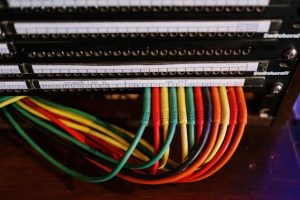
How Technology is Making Urban Areas More Efficient and Sustainable
Cities have always been places of innovation and progress. With technology advancing at an unprecedented pace, urban areas are becoming more efficient and sustainable than ever before. Here are some of the ways that technology is transforming cities and making them more livable.
Smart Energy Grids
One of the major challenges for cities is to manage their energy needs sustainably. The smart energy grid technology is helping urban areas to become more efficient in managing and distributing energy. By integrating smart meters, sensors, and control systems, the grid can monitor energy usage in real-time and adjust supply and demand accordingly. This not only helps to reduce carbon emissions but also ensures a stable energy supply.
Smart Mobility
With the increasing population in cities, traffic congestion has become a significant issue. However, with technology, urban mobility is becoming more sustainable and efficient. Smart mobility solutions, such as electric vehicles, ride-sharing, and bike-sharing, are gaining popularity. Additionally, intelligent traffic management systems that use real-time data to optimize traffic flows and reduce congestion are being developed.
Smart Buildings
Buildings are significant energy consumers, accounting for over 40% of global energy use. Smart buildings, equipped with sensors and control systems, can significantly reduce energy consumption by automatically adjusting lighting, heating, and cooling based on occupancy and external conditions. This not only saves energy but also reduces operating costs for building owners.
Waste Management
Effective waste management is essential for sustainable urban living. With the help of technology, waste management is becoming more efficient and sustainable. Smart waste management systems are using sensors to monitor and manage waste bins in real-time, enabling more efficient collection and disposal of waste. Additionally, recycling technologies are being developed that can convert waste into valuable resources.
Green Spaces
Green spaces, such as parks and gardens, play a significant role in promoting sustainability and livability in cities. Technology is enabling urban planners and landscape architects to design and manage green spaces more efficiently. For example, smart irrigation systems can optimize water usage, and sensors can monitor soil moisture levels, ensuring that plants receive the right amount of water at the right time.






